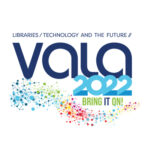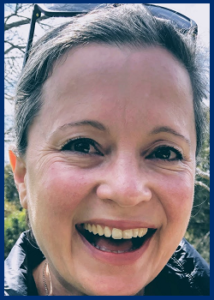Gitting by with a little help from our friends: using Gitbook and crowdsourcing to find a common solution to common problems
 VALA2022 CC3 TABLE 1
VALA2022 CC3 TABLE 1
Wednesday 15 June 2022, 15.10-15.40 and 15.50-16.20
Sara King
- Training and Engagement Lead
- AARNet
Please tag your comments, tweets, and blog posts about this session: #vala2022 #cc3
Abstract
In this Critical Conversation I’d like to have a candid conversation about the kinds of ‘not-quite ’technical’ digital skills that people need but do not know where or how to get them. Often these are the skills that are simply assumed people have, or people expect to learn in libraries but are not usually associated with any formal training, such as how to name files or create a folder structure. A group of librarians is in the process of creating a free, open educational resource (OER) that aims to address these skills, in plain language and in a format that can also be continuously updated as the skills and technologies change. But what are these skills? How do we articulate what we need to know? And would you like to be involved?
BACKGROUND
The Digital Skills GitBook project arose from the need to address assumptions and implied knowledge inherent in the work of libraries.
In 2021 a group from the CAUL Digital Dexterity Champions network commenced a project using static web technology (in this case GitBook) with the aim of creating a collectively written and produced OER that attempts to tackle the many (and ever changing) digital skills that the academic community need.
These ‘not-quite-technical skills’ are those needed to teach, to manage data responsibly, to continue to create solutions through research outcomes and to thrive into the 21st century. What librarians know, however, is that many in the academic community do not have these skills and either avoid learning them, come up with unsustainable workarounds or turn up at the library hoping for help. But do the librarians themselves have these skills?
Static web technology allows users with little web experience to create basic websites to share text alongside images, videos and other visualisations. The ease of use of this technology offers an increased level of autonomy and freedom for the provider of the information in terms of the presentation style and costs. The ease of production and simple formats mean that this provides the ability to set out potentially complex information and ideas in an approachable way, much like a book, but online.
Biography
 Dr Sara King is the Training and Engagement Lead for AARNet. She is focused on outreach within the research sector, developing communities of interest around training, outreach and skills development in eResearch. She is passionate about helping others develop the infrastructure and digital literacies required for working in a data-driven world, translating technology so it is accessible to everyone.
Dr Sara King is the Training and Engagement Lead for AARNet. She is focused on outreach within the research sector, developing communities of interest around training, outreach and skills development in eResearch. She is passionate about helping others develop the infrastructure and digital literacies required for working in a data-driven world, translating technology so it is accessible to everyone.
This work is licensed under a Creative Commons Attribution-NonCommercial License.
